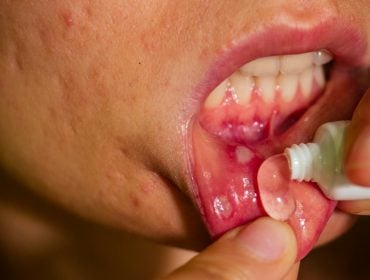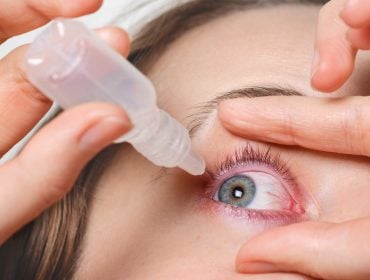Herpes Meningitis
A brief overview of herpes meningitis
Herpes meningitis is a relatively rare but severe condition that occurs when the herpes simplex virus (HSV) infects the protective membranes covering the brain and spinal cord, known as the meninges. This type of meningitis is a form of viral meningitis and can be caused by either HSV-1, which is primarily responsible for oral herpes, or HSV-2, which is associated with genital herpes. Although herpes meningitis is less common than bacterial or fungal meningitis, it can still cause significant discomfort and complications if not diagnosed and treated promptly. In this article, we’ll discuss “Is meningitis an STD?” We are the leading STD testing company and look forward to educating the public on everything STD-related!
Importance of understanding the condition and its symptoms
Recognizing the signs and symptoms of herpes meningitis is crucial for receiving timely medical care and minimizing potential complications. Early treatment can reduce the severity of the illness and prevent long-term neurological damage. Additionally, understanding the risk factors and transmission routes of the herpes simplex virus can aid in prevention efforts, ultimately reducing the likelihood of developing herpes meningitis. Individuals can better protect themselves and others by raising awareness about this condition, ensuring a healthier and safer community.
II. Causes of Herpes Meningitis
Herpes meningitis is most commonly caused by herpes simplex virus (HSV) types 1 and 2, responsible for oral and genital herpes.
The virus can be transmitted through contact with saliva or secretions from the mouth or genitals and through communication with infected skin lesions. Risk factors for developing herpes meningitis include having a weakened immune system due to HIV/AIDS, undergoing chemotherapy, or taking immunosuppressant drugs.
It is important to note that while HSV-1 and HSV-2 are both capable of causing meningitis, HSV-2 is far more common than HSV-1 in this regard.

Is Meningitis an STD?
Meningitis is not considered a sexually transmitted disease (STD). Meningitis is an inflammation of the protective membranes (meninges) which cover the spinal cord and brain. Numerous bacterial, viral, fungal, and parasitic infections can cause it. However, some viruses that can cause meningitis, such as herpes simplex virus (HSV), can be transmitted sexually. In these cases, the virus may lead to meningitis, but the condition is not classified as an STD.
Herpes Meningitis Symptoms
Early Herpes Meningitis Symptoms
Herpes meningitis is a viral infection that can cause std flu-like symptoms, such as fever, headache, and a stiff neck. These are the most common early symptoms of herpes meningitis. Fever is usually the first symptom, followed by a severe headache and stiff neck. Other symptoms may include nausea, vomiting, lack of appetite, irritability, lethargy, sleepiness or difficulty waking up, light sensitivity, and confusion. In some cases, seizures or mental alertness loss may occur.
Additional Herpes Meningitis Symptoms
Herpes Meningitis can also cause more severe symptoms such as nausea, vomiting, photophobia (sensitivity to light), and an altered mental state. These can range from mild to severe and may require medical attention.
Differences in symptoms between adults and children
Herpes meningitis can affect both adults and children, but the presentation of symptoms may vary between these age groups. While some symptoms are common across all ages, such as fever, headache, and stiff neck, there are notable differences in how the condition manifests in adults compared to children.
Adults:
- Severe headache
- High fever
- Photophobia (sensitivity to light)
- Nausea and vomiting
- Altered mental state or confusion
- Seizures (less common)
Children:
- Irritability or excessive crying
- Poor feeding or loss of appetite
- Lethargy or excessive sleepiness
- Bulging fontanelle (soft spot on the head) in infants
- Seizures (more common in children than adults)
- Difficulty waking up or rousing from sleep
Diagnosis of Herpes Meningitis
Medical history and physical examination
The process of diagnosing herpes meningitis begins with a thorough evaluation of the patient’s medical history and a physical examination. The healthcare provider will ask about symptoms, recent illnesses, and potential exposure to the herpes simplex virus. They will also check for signs of meningitis, such as neck stiffness, fever, and an altered mental state.
Lumbar puncture (spinal tap)
A lumbar puncture, or spinal tap, is a necessary diagnostic procedure for identifying the presence of herpes meningitis. During this procedure, a needle is inserted into the lower back to collect a sample of cerebrospinal fluid (CSF), which surrounds the brain and spinal cord. The accumulated fluid is then examined for signs of infection, such as increased white blood cell count, elevated protein levels, and decreased glucose levels.
Polymerase chain reaction (PCR) test for HSV DNA
A polymerase chain reaction (PCR) test is performed on the cerebrospinal fluid sample obtained during the lumbar puncture. This highly sensitive and specific test can detect minute amounts of HSV DNA in the fluid, allowing for a definitive diagnosis of herpes meningitis. The PCR test can also differentiate between HSV-1 and HSV-2, providing valuable information for determining the most appropriate treatment plan for the patient.
Treatment Options for Herpes Meningitis
Antiviral medications
Antiviral medications are the primary treatment for herpes meningitis, as they help to control the infection and reduce the severity of symptoms.
- Acyclovir: This medication is often the first choice for treating herpes meningitis. It is administered intravenously (IV) for severe cases and may be given orally for milder cases or as a follow-up treatment after initial IV therapy.
- Valacyclovir: Valacyclovir is an oral medication that is converted into acyclovir in the body. It may be prescribed for milder cases of herpes meningitis or as a follow-up treatment after initial IV therapy with acyclovir.
- Famciclovir: This oral medication is another option for treating herpes meningitis, particularly if a patient cannot tolerate acyclovir or valacyclovir. However, it is less commonly used than the other two medications.

Symptom management
In addition to antiviral medications, treatment for herpes meningitis often involves managing symptoms to ensure the patient’s comfort and well-being.
- Pain relievers: Over-the-counter ones, such as acetaminophen or ibuprofen, can help alleviate headaches and reduce fever.
- Anti-inflammatory medications: Nonsteroidal anti-inflammatory drugs (NSAIDs) like ibuprofen can help reduce inflammation and may provide relief from pain and fever.
- Fluid intake and hydration: Ensuring adequate fluid intake is essential for maintaining hydration and preventing complications. Intravenous fluids may be given in bad cases or if the patient cannot drink adequately.
Hospitalization for severe cases
Patients with severe cases of herpes meningitis may require hospitalization for close monitoring and intensive care. This may involve intravenous administration of antiviral medications, fluids, and other supportive treatments as needed. Hospitalization allows healthcare providers to manage potential complications and ensure the best possible outcome for the patient.
Complications of Herpes Meningitis
Long-term neurological complications
Although herpes meningitis is often successfully treated with antiviral medications, some patients may experience long-term neurological complications. These can include cognitive difficulties, memory problems, or changes in personality. In rare cases, severe infections can lead to more serious complications such as hearing loss, vision problems, or seizures.
Recurrent episodes of meningitis
Some individuals with herpes meningitis may experience recurrent episodes of the condition. This can be particularly challenging to manage, as each recurrence can potentially cause further neurological damage. It is vital for patients who have experienced herpes meningitis to work closely with their healthcare providers to monitor for signs of recurrence and initiate treatment promptly if necessary.
Encephalitis (brain inflammation)
In rare cases, herpes meningitis can progress to encephalitis, which is a more severe form of brain inflammation. Herpes encephalitis can be life-threatening and requires immediate medical attention. Symptoms of encephalitis may include severe headache, high fever, seizures, altered mental status, or even coma. Prompt diagnosis and aggressive treatment with antiviral medications are crucial in managing this potentially serious complication.
Prevention Strategies for Herpes Meningitis
Safe sex practices
One of the most effective ways to prevent herpes meningitis is by practicing safe sex. This includes using condoms consistently and correctly, limiting sexual partners, and engaging in open communication with partners about their sexual health and any known infections.
Avoiding contact with active herpes sores
Direct contact with active herpes sores can transmit the virus, potentially leading to herpes meningitis. To reduce the risk of infection, one should avoid touching or engaging in activities that could cause contact with active sores, such as oral, vaginal, or anal sex. If you have herpes symptoms, inform your partner(s) about your condition and avoid sexual contact during outbreaks.
Antiviral medications for individuals with frequent outbreaks
For individuals who experience frequent herpes outbreaks, taking antiviral medications as suppressive therapy can help reduce the risk of transmitting the virus and potentially developing herpes meningitis.
Getting tested at stdcheck.com
Regular testing for sexually transmitted infections, including herpes, is an essential aspect of maintaining sexual health and preventing the spread of diseases. By getting tested at reliable facilities like stdcheck.com, you can stay informed about your health status and take necessary precautions to protect yourself and your partners. So, Is meningitis an STD? No, but it can be caused by one.
Medically Reviewed by Kaci Durbin, MD, MBA, FACOG on June 3, 2023
Secure and Confidential
STD testing services
The fastest results possbile - available in 1 to 2 days

Tagged
Categorized As
Author: STD Check Editorial Team
At STDCheck.com, we go to great lengths to ensure quality content. We’re using our own collection of data. It is not bought or made up for “click-bait” purposes. We don’t entice traffic with cheesy graphics or raunchy headlines. Our information is to promote STD testing, educate people, let go of social stigmas, and bring awareness. We also provide a completely confidential atmosphere through private testing. When we produce an article, it is fact-based. We check it with medical advisors that approve it. Our staff consists of doctors and other medical professionals who peer review the content we make available on STDCheck.com. From all over the world, we have sourced the best and the brightest content developers, including medical professionals, marketing engineers, data scientists, content specialists, and media relations.




